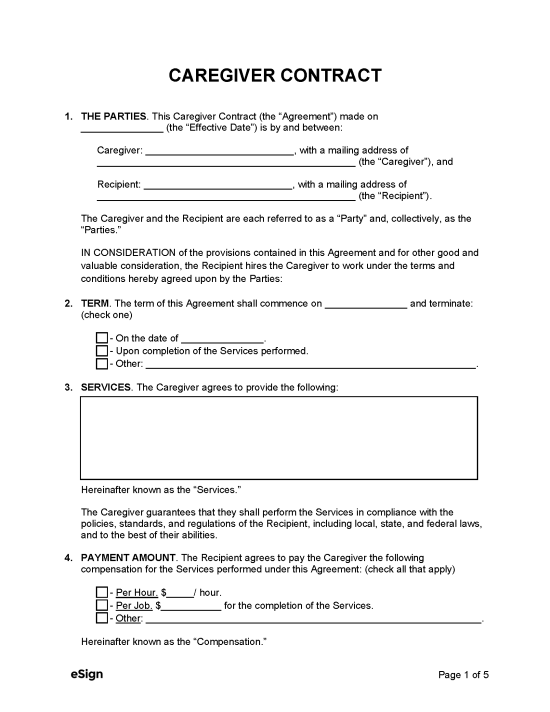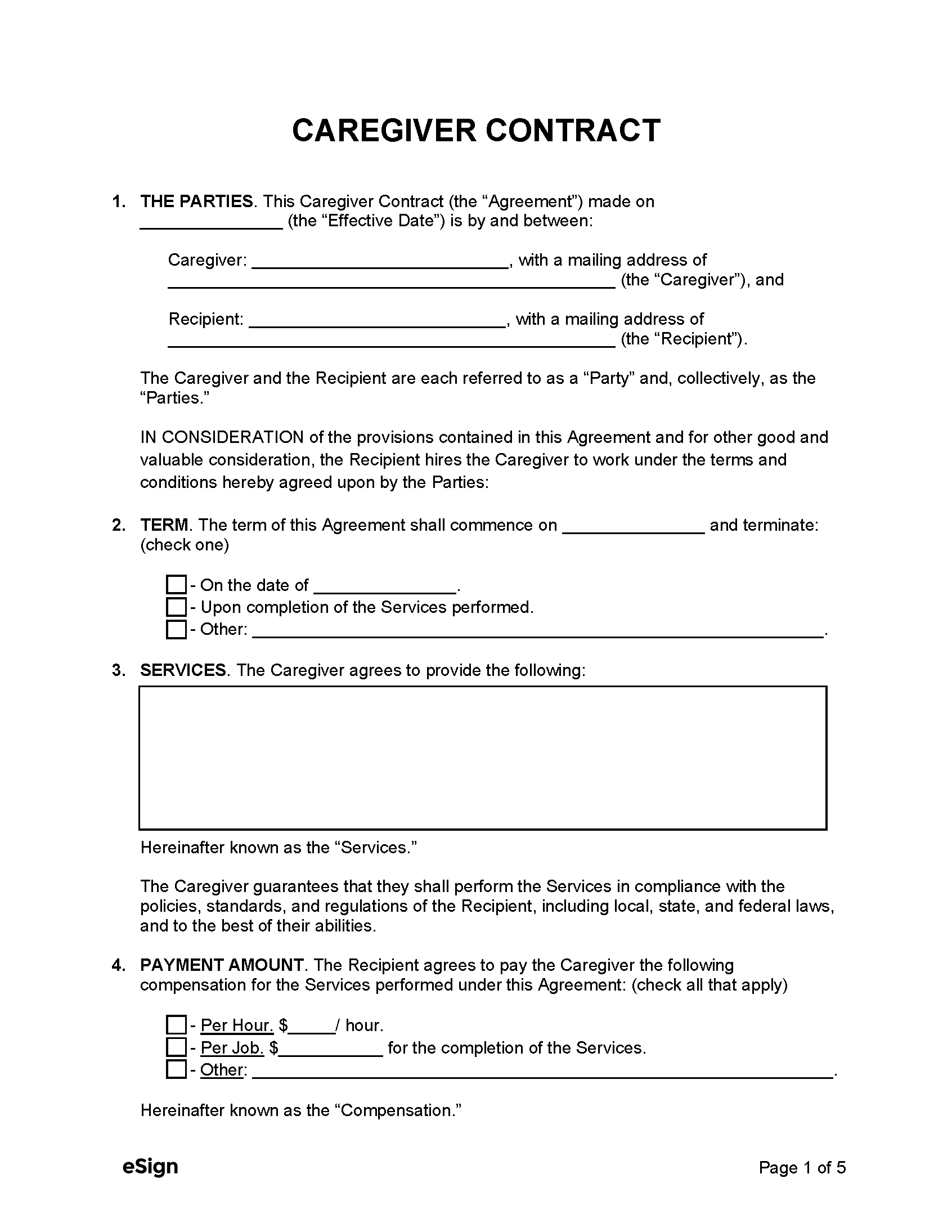Household Employees
In-home caregivers may be classified as household employees rather than independent contractors if the client[1]:
- Hires them directly.
- Sets their working schedule.
- Decides and controls the tasks they’ll perform.
If hiring household employees, clients must comply with all federal, state, and local employment laws.[2]
What’s Included in the Contract
Party Information – The names and mailing addresses of the caregiver and the client need to be included in the form. Often, the client is someone other than the person receiving care; for example, it might be a family member or guardian acting on their behalf.
Duration – The contract should specify the start date of the agreement and explain how the arrangement will end, either at a certain date or event.
Compensation – The caregiver’s rate and payment frequency should be defined. Generally, they’ll be paid an hourly rate that they receive on a weekly or bi-weekly basis.
Employment Status – A caregiver contract should indicate whether the caregiver works as the client’s employee or as an independent contractor.
Schedule and Services – The contract should outline the caregiver’s schedule and the tasks they’re expected to perform. A caregiver’s services usually include housework, personal care, cooking, and transportation to medical appointments.
Note: If the client isn’t the person receiving care, the recipient should be identified in the services section, including the address of their home or other location where care will be provided.
Sample
Download: PDF, Word (.docx), OpenDocument
CAREGIVER CONTRACT
This Caregiver Contract (“Contract”) is made on [DATE] by and between [CAREGIVER NAME] (“Caregiver”), with a mailing address of [CAREGIVER ADDRESS], and [CLIENT NAME] (“Client”) with a mailing address of [CLIENT ADDRESS].
1. SERVICES. The Caregiver agrees to provide care to the Client at [ADDRESS WHERE CARE IS TO BE PROVIDED]. The services to be provided by the Caregiver include: [DESCRIPTION OF SERVICES].
2. PAYMENT. The Client shall pay the Caregiver $[AMOUNT] per [PAYMENT BASIS (E.G., HOUR)] for the services provided. Payment shall be made by [PAYMENT METHOD] every [PAYMENT FREQUENCY].
3. SCHEDULE. The Caregiver is: (check one)
☐ – Not required to adhere to a weekly schedule.
☐ – Required to adhere to the following weekly schedule:
Monday: [START TIME] ☐ a.m. ☐ p.m. to [END TIME] ☐ a.m. ☐ p.m.
Tuesday: [START TIME] ☐ a.m. ☐ p.m. to [END TIME] ☐ a.m. ☐ p.m.
Wednesday: [START TIME] ☐ a.m. ☐ p.m. to [END TIME] ☐ a.m. ☐ p.m.
Thursday: [START TIME] ☐ a.m. ☐ p.m. to [END TIME] ☐ a.m. ☐ p.m.
Friday: [START TIME] ☐ a.m. ☐ p.m. to [END TIME] ☐ a.m. ☐ p.m.
Saturday: [START TIME] ☐ a.m. ☐ p.m. to [END TIME] ☐ a.m. ☐ p.m.
Sunday: [START TIME] ☐ a.m. ☐ p.m. to [END TIME] ☐ a.m. ☐ p.m.
4. EMPLOYMENT STATUS. The Caregiver shall be recognized as a: (check one)
☐ – W-9 Employee.
☐ – 1099 Independent Contractor.
5. TERMINATION. Either party may terminate this Contract at any time upon written notice.
IN WITNESS WHEREOF, the parties have executed this Contract on the date first above written.
Caregiver Signature: _____________________
Print Name: [CAREGIVER NAME]
Client Signature: _____________________
Print Name: [CLIENT NAME]

